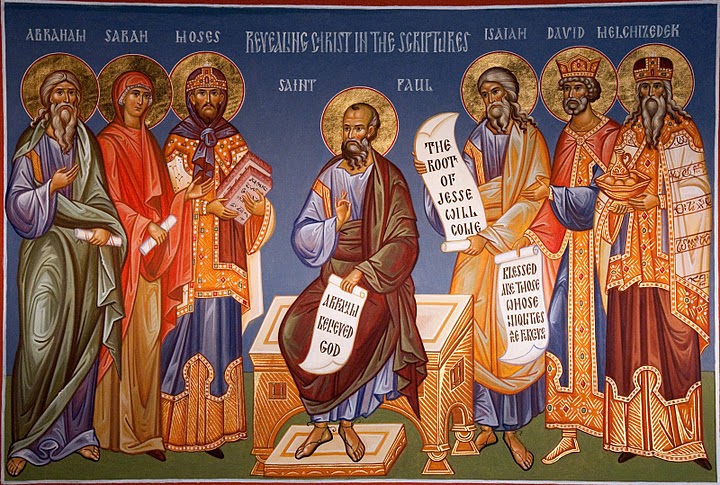Within the rich tapestry of human religious experience, the Bahá’í Faith emerges as a distinct yet harmonious continuum, elucidating the phenomenon of prophetic revelation through a unique lens. This exploration delves into the Bahá’í perspective on where Prophets appear and the profound underpinnings that inform their presence in our midst. By exploring these teachings, readers may find an awakening of curiosity and a transformative shift in perspective.
The Bahá’í Faith posits that God, in His infinite wisdom, sends forth Manifestations—individuals chosen to impart divine guidance to humanity at pivotal moments in history. These Manifestations are revered not merely as prophets in the conventional sense, but rather as reflections of a singular divine essence, embodying the attributes of God more fully than other human beings. Notably, the central figures include Bahá’u’lláh, the Báb, Jesus, Muhammad, Moses, and many others revered across various religious traditions. Each of these Manifestations serves a purpose, addressing humanity’s evolving spiritual needs.
Where, then, do these Prophets appear? According to Bahá’í teachings, the appearance of Prophets is neither random nor capricious. It occurs in response to humanity’s spiritual and moral exigencies, transcending geographical and temporal boundaries. This phenomenon underscores a universal truth—that divine wisdom is not confined to a single place or time, but rather interwoven through the fabric of human history, manifesting wherever the conditions are ripe for growth and transformation.
Mahdist theology, particularly significant in the context of the Bahá’í Faith, elucidates the cyclical nature of prophetic revelation. Historically, each Manifestation has emerged amidst the socio-political and spiritual crises of their times. For instance, the arrival of Bahá’u’lláh in 19th-century Persia came during a period of severe moral decay and societal upheaval, necessitating a spiritual renaissance. This understanding elevates the role of the Prophet beyond mere religious authority to that of social and moral reformer, advocating for principles such as unity, justice, and the eradication of prejudice.
Moreover, the Bahá’í teachings facilitate an intriguing discourse regarding the progressive nature of revelation. Each Prophet builds upon the foundation laid by their predecessors, introducing new insights while harmonizing past teachings with contemporary needs. This reinforces the concept ofunity amongst world religions—an idea that may ignite contemplation among seekers of truth. The continuity of revelation untangles the notion of exclusivity that often crops up in religious discourse, inviting individuals to see the divine message as a symphony of voices rather than a cacophony of contradictions.
The intersection of divine wisdom and human potential is further delineated in the Bahá’í writings. The call for individual transformation is pivotal; believers are urged to see themselves as agents of change. This perspective invites a seismic shift in one’s worldview, wherein the responsibility for fostering unity and understanding among diverse communities becomes not only a doctrinal tenet but also a personal imperative. Significantly, this challenge resonates deeply amid contemporary societal fractures, where the essence of unity is not merely aspirational but essential for global progress.
In exploring the function of Prophets, it is essential to acknowledge the significance of their teachings. Each Manifestation, while embodying God’s attributes, imparts lessons that are both universal and specific, addressing the immediate needs of their followers. For instance, the ethical teachings of Jesus, the social justice emphasized by Muhammad, and the emphasis on education and equality articulated by Bahá’u’lláh collectively contribute to an expansive moral framework that transcends individual beliefs. Such eclecticism piques curiosity, compelling earnest seekers to delve deeper into inter-religious dialogues.
The Bahá’í principle of the oneness of humanity further amplifies the importance of prophetic teachings. It underscores the belief that humanity is united, transcending ethnic, racial, and religious diversities. This principle aligns with the notion that the transformative messages of the Prophets are intended to cultivate fellowship among all people. The teachings advocate that the heart of religious experience lies not in dogma but in action and connection—a notion that invites individuals to examine their own beliefs and practices with renewed clarity.
To encapsulate the discussions surrounding where the Prophets appear and the inherent motivations behind their arrival, one is invited to revel in the dialectical and ever-evolving nature of humanity’s spiritual journey. This journey urges individuals to inquire further: What does it mean for contemporary society? How do we engage with and embody these teachings to foster genuine understanding and compassion?
Ultimately, the presence of Prophets in our midst signals a profound opportunity; it is an invitation to recognize a larger, interconnected narrative crafted by the hands of divine intention. As the world continues to grapple with division and discord, the teachings of the Bahá’í Faith offer a transformative roadmap—one that promises not only a shift in perspective but an awakening of the human spirit towards greater understanding, acceptance, and unity.
